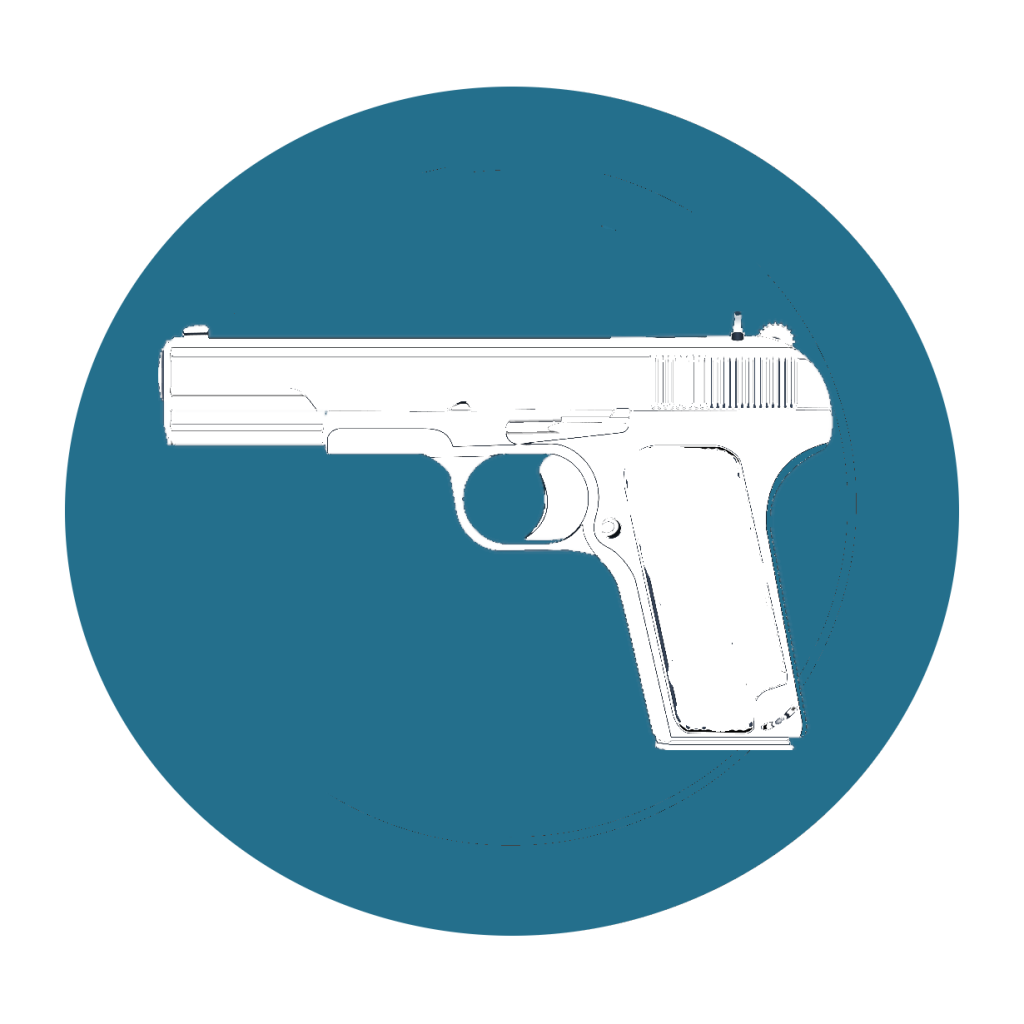| Status of the embargo | Ongoing |
| Entity | State |
| Organisation(s) imposing embargo(es) | UN & EU & LEA |
| Restriction(s) | Conventional weapons Nuclear Internal repression Dual use items Surveillance equipment |
| Exceptions | Yes, no prior notification or approval |
Syria is currently under UN, EU and League of Arab States arms embargoes.
UN
Syria has been under UN arms embargo since September 2013 (Resolution 2118 (2013)). The measures have not been amended to date.
- Nuclear
Prohibitions
The current sanctions regime, as detailed in Resolution 2118 (2013), decides that :
- all Member States shall refrain from providing any form of support to non-State actors that attempt to develop, acquire, manufacture, possess, transport, transfer or use nuclear, chemical or biological weapons and their means of delivery (Resolution 2118 (2013), para.18).
- all Member States shall prohibit the procurement of chemical weapons, related equipment, goods and technology or assistance from the Syrian Arab Republic by their nationals, or using their flagged vessels or aircraft, whether or not originating in the territory of the Syrian Arab Republic (Resolution 2118 (2013), para.20).
Exceptions
Requiring no prior approval or notification:
- Member States are authorized to acquire, control, transport, transfer and destroy chemical weapons identified by the Director-General of the OPCW, consistent with the objective of the Chemical Weapons Convention, to ensure the elimination of the Syrian Arab Republic’s chemical weapons program in the soonest and safest manner (Resolution 2118 (2013), para.10).
Others
The UN arms embargo is indefinite.
Syria is also under League of Arab States’ and EU embargoes.
EU
Syria has been under EU embargo since May 2011 (Council Decision 2011/273/CFSP). Sanctions were first strengthened from January 2012 onwards. But in April 2013, they were eased in order to facilitate support to the Syrian opposition and almost lifted in June of that same year.
- Conventional weapons
Prohibitions
The current sanctions regime, as detailed in updated versions of Council Decision 2013/255/CFSP and Regulation 36/2012, prohibits :
- The purchase, import or transport of arms and related material of all types, including weapons and ammunition, military vehicles and equipment, paramilitary equipment and spare parts for the aforementioned, from Syria or originating in Syria (Decision 2013/255/CFSP, art.3, para.1). The supply, financing and financial assistance in connection with the items in question are prohibited. (Decision 2013/255/CFSP, art.3, para.2).
Although arms exports to Syria are no longer covered in the current embargo, Council Decision 2013/255/CFSP reminds Member States of their engagement to solely respect conditions and criteria’s listed in Common Position 2008/944/CFSP if they consider such exports.
Exceptions
However, this sanctions regime provides for one exceptions that does not require prior approval or notification :
- the import or transport of chemical weapons or related material from Syria or originating in Syria, undertaken in accordance with paragraph 10 of UN Security Council Resolution 2118(2013) and related decisions of the Executive Council of the OPCW, consistent with the objective of the Chemical Weapons Convention (Decision 2013/255/CFSP, art.3, para.3).
2.Equipment which might be used for internal repression
Prohibitions
The current sanctions regime, as detailed in updated versions of Council Decision 2013/255/CFSP and Regulation 36/2012, prohibits :
- The sale, supply, transfer or export of certain equipment, goods and technology which might be used for internal repression or for the manufacture and maintenance of products which could be used for internal repression, to Syria (Decision 2013/255/CFSP, art.1, para.1 and Regulation 36/2012, art.2a, para.1, a). These equipment are listed in Annex IA of Regulation 36/2012. The list of these items is not exhaustive and Member States may prohibit or impose authorization requirement on other products that those already listed if they deem appropriate (Regulation 36/2012, art.2).
- The provision of technical assistance or brokering services related to equipment, goods or technology which might be used for internal repression or for the manufacture and maintenance of products which could be used for internal repression as listed in Annex IA, to any person, entity or body in Syria or for use in Syria (Decision 2013/255/CFSP, art.1, para.2 and Regulation 36/2012, art.3, para.1).
Exceptions
However, the sanctions regime provides for several exceptions.
Requiring no prior approval or notification from/to the UN Sanctions Committee:
- the export, sale, supply or transfer of equipment which might be used for internal repression other than those listed in Annex IA or Annex IX, whether or not originating in the Union, to any person, entity or body in Syria or for use in Syria, as well as the provision of technical assistance, financing and financial assistance related to the equipment aforementioned (Decision 2013/255/CFSP, art.2 and Regulation 36/2012, art.2).
- The sale, supply, transfer or export of equipment, goods or technology which might be used for internal repression, listed in Annex IA, or for the manufacture and maintenance of products which might be used for internal repression, as well as the provision of related technical or financial assistance, where the competent authorities of the Member States determines on a case-by-case basis that they are intended for food, agricultural, medical or other humanitarian purposes, or for the benefit of UN Personnel, or personnel of the Union or its Member States (Decision 2013/255/CFSP, art.1, para.3, a and Regulation 36/2012, art.2a, para.2 and art.3, para.3).
- The sale, supply, transfer or export of equipment, goods or technology which might be used for internal repression, listed in Annex IA, as well as the provision of related technical or financial assistance, where a Member State determines on a case-by-case basis that they are intended for activities undertaken in accordance with paragraph 10 of United Nations Security Council Resolution 2118(2013) and related decisions of the Executive Council of the OPCW, consistent with the objective of the Convention on the Prohibition of the Development, Production, Stockpiling and Use of Chemical Weapons and on their Destruction (Chemical Weapons Convention) and after consultation with the OPCW (Decision 2013/255/CFSP, art.1, para.3, b and b and Regulation 36/2012, art.2a, para.3 and art.3, para.5).
- The sale, supply, transfer or export of equipment, goods or technology which might be used for internal repression listed in Annex IX, as well as the provision of related technical or financial assistance, unless the competent authorities of the Member State have reasonable grounds to determine that the equipment, goods or technology the sale, supply, transfer or export of which is in question is or might be used for internal repression or for the manufacture and maintenance of products which might be used for internal répression (Regulation 36/2012, art.2b and art.3, para.4).
3. Dual-use items
Prohibitions
The current sanctions regime, as detailed in updated versions of Council Decision 2013/255/CFSP and Regulation 36/2012, prohibits :
- A Member State may prohibit or impose an authorisation requirement on the export to Syria of dual-use items referred to in Article 4(2) of Regulation (EC) No 428/2009 (Regulation 36/2012, art.2d).
4. Surveillance equipment
Prohibitions
The current sanctions regime, as detailed in updated versions of Council Decision 2013/255/CFSP and Regulation 36/2012, prohibits :
- The sale, supply, transfer or export of equipment or software intended primarily for use in the monitoring or interception by the Syrian regime, or on its behalf, of the Internet and of telephone communications on mobile or fixed networks in Syria and the provision of assistance to install, operate or update such equipment or software (Decision 2013/255/CFSP, art.4 and Regulation 36/2012, art.4, para.1 and art.5, para.1, a and b). These equipement and software are listed in Annex V of Regulation 36/2012.
- The provision of any telecommunication or internet monitoring or interception services of any kind to, or for the direct or indirect benefit of, the State of Syria, its Government, its public bodies, corporations and agencies or any person or entity acting on their behalf or at their direction (Regulation 36/2012, art.5, para.1, c).
Exceptions
This sanctions regime provides for one exception that does not require prior approval or notification :
- The sale, supply, transfer or export of equipment or software intended primarily for use in the monitoring or interception, when the competent authorities of the Member States have reasonable grounds to determine that the equipment, technology or software in question would not be used for monitoring or interception, by the Syrian regime or on its behalf, of internet or telephone communications in Syria (Regulation 36/2012, art. 4, para. 2 et art. 5, para. 1).
Others
Sanctions provided for in Council Decision 2025/1096/CFSP have been extended to June 1st 2026 and are regularly reviewed.
Syria is also under UN and The League of Arab States’ embargoes.
LEA
Syria has been under The League of Arab States’ embargo since December 2011 (Statement of The League of Arab States of 3rd December 2011). This embargo has not been amended to date.
Prohibitions
The Ministerial Committee of the League of Arab States decides in its statement to prohibit all arms exports to Syria from Member-States.
Others
Syria is also under UN and EU sanctions.
Restrictions diagram:

Internal repression

Surveillance equipment

Dual use

Conventional weapons

Nuclear